The Hue City National Assembly delegation discussed in group 7 with the delegations: Lang Son, Thai Nguyen and Kien Giang .
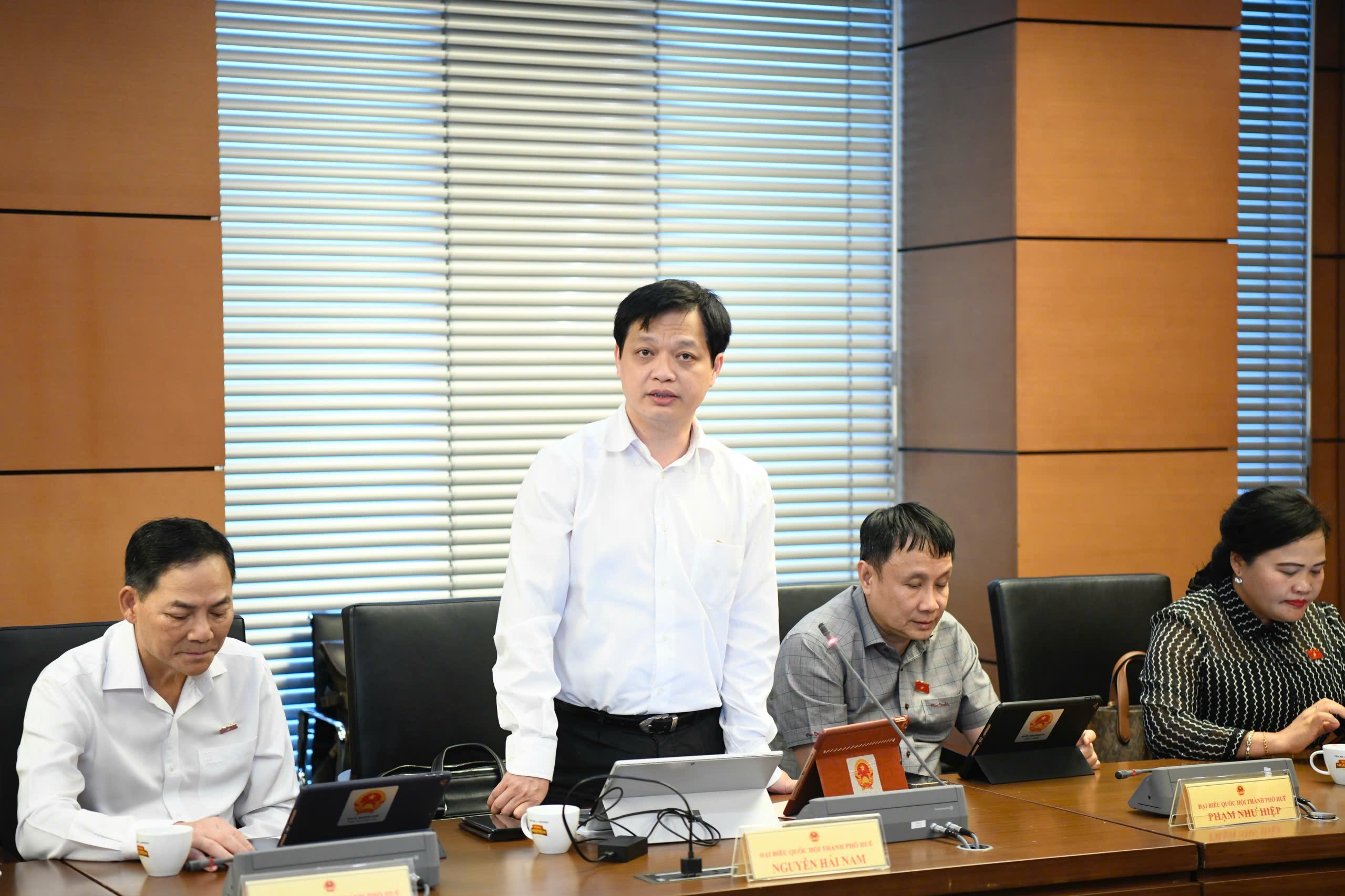 |
| Delegate Nguyen Hai Nam (National Assembly Delegation of Hue City) participated in the discussion. Photo: Provided by National Assembly Delegation of Hue City |
Opinions at the discussion session showed that the urgent requirement is to perfect the legal framework in a transparent, synchronous and effective manner - not only to protect the national internal strength but also to enhance the prestige and attractiveness of Vietnam in the eyes of the international community.
Risk of "blacklisting" if there is a lack of transparency in asset ownership
Participating in the discussion of the Draft Law amending and supplementing a number of articles of the Law on Enterprises, delegate Nguyen Hai Nam (National Assembly Delegation of Hue City) especially emphasized the urgent need to make information about asset owners transparent in the context that Vietnam is under supervision from international financial institutions.
He cited the Financial Action Task Force (FATF) recommendations, including Recommendations 24 and 10, which require countries to clearly identify the “beneficial owners” – those who actually own assets or control businesses. This is a core element to prevent money laundering and attract transparent investment.
“Vietnam is currently on the FATF grey list. Without timely adjustments, the risk of being blacklisted is very high,” the delegate warned.
He also noted that if Vietnam falls on the "blacklist", it could be considered a less transparent market, causing international investment flows to decline severely.
Therefore, this amendment to the Enterprise Law needs to clarify the provisions related to beneficial owners. According to the delegate, the draft law has initially demonstrated this spirit in Article 3 (explanation of terms) and Article 10 (responsibility for periodic information updates).
“Even information such as residence, marital status… if not updated accurately is considered non-transparent,” Mr. Hai Nam emphasized.
In addition to the Enterprise Law, Hai Nam delegate also pointed out four major shortcomings in the implementation of the Planning Law. These are: overlapping planning between the central and local levels, causing difficulties in determining priorities. Slow planning progress due to complicated procedures and inconsistent regulations. Ineffective coordination between ministries, branches and localities; no clear mechanism for processing procedures. Limited resources, especially finance for planning and adjustment.
He recommended amending relevant regulations to shorten the time, increase local initiative and promote synchronous and effective planning implementation.
Establishing a public fund: Avoid spreading and wasting resources
At the same discussion session, Deputy Head of the Hue City National Assembly Delegation Nguyen Thi Suu warned about the risk of waste and overlap in establishing new state funds, especially in the fields of environment and clean energy.
She said that Vietnam currently has many funds with similar functions such as: Vietnam Environmental Protection Fund, National Science and Technology Development Fund, National Technology Innovation Fund.
In addition, in localities such as Dak Nong, Binh Duong, Quang Ngai, Ho Chi Minh City, etc., many provincial environmental funds have been established. However, the operation of some funds is still ineffective, dispersing resources and increasing administrative costs.
“If not strictly controlled, these funds can be misused, causing losses,” Ms. Suu emphasized.
Delegates also said that many funds are currently only accessible to large enterprises, while small enterprises, business households and people – the main subjects in energy transition – face many barriers. This goes against the goal of sustainable and equitable development.
Based on that reality, she proposed integrating the functions of the new fund into existing funds to avoid overlap. If it is really necessary to establish a new fund, it is necessary to clarify the independent and transparent operating mechanism, have social audits and periodic reports to the National Assembly.
“The development of a guiding decree needs to closely follow the principles of public fund management according to international practices…,” Ms. Suu recommended.
Source: https://huengaynay.vn/chinh-tri-xa-hoi/theo-dong-thoi-su/minh-bach-so-huu-tai-san-va-quan-ly-quy-cong-153471.html


![[Photo] Ready for the top competitions of Vietnamese table tennis](https://vphoto.vietnam.vn/thumb/1200x675/vietnam/resource/IMAGE/2025/5/18/9c547c497c5a4ade8f98c8e7d44f5a41)

![[Photo] Party and State leaders attend the special art program "You are Ho Chi Minh"](https://vphoto.vietnam.vn/thumb/1200x675/vietnam/resource/IMAGE/2025/5/18/6895913f94fd4c51aa4564ab14c3f250)


![[Photo] Many young people patiently lined up under the hot sun to receive a special supplement from Nhan Dan Newspaper.](https://vphoto.vietnam.vn/thumb/1200x675/vietnam/resource/IMAGE/2025/5/18/6f19d322f9364f0ebb6fbfe9377842d3)


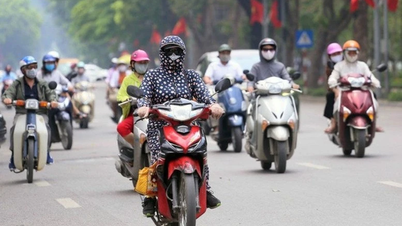

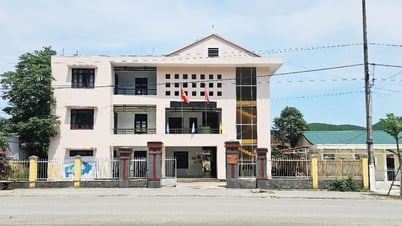
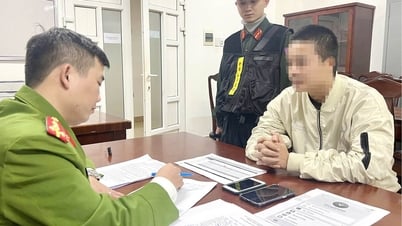










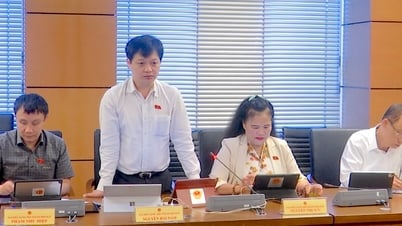
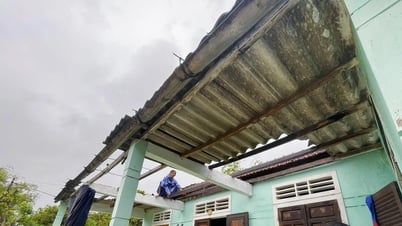
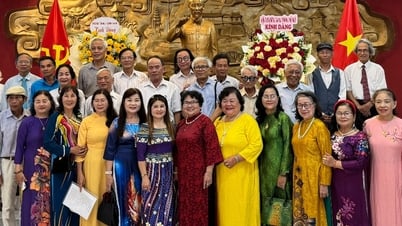































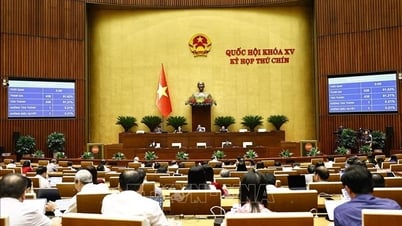

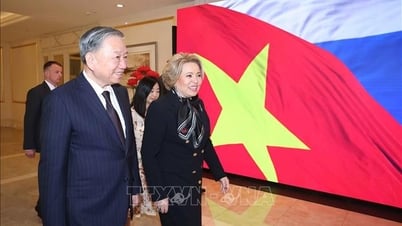















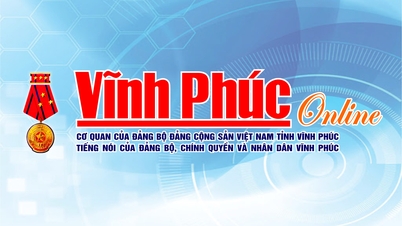

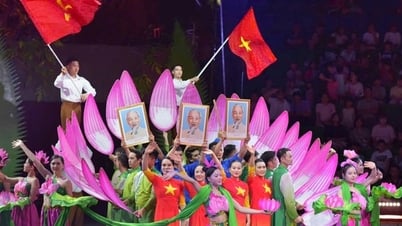









Comment (0)